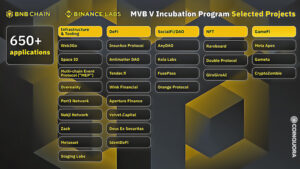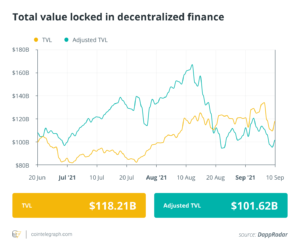NFTs (non-fungible tokens) are revolutionizing the way people interact. From music, sports, and real estate to digital fashion, art, and collectibles, NFTs are changing industries and transforming economies. They are empowering a new generation of disruptive technologies, such as the digitization of culture and assets and the creation of a new, immersive internet. They are here to stay, and people around the globe are eager to learn more about them.
Toward that end, the NFT Summit was held on June 1 and 2, 2021. It brought together industry experts and creators in a deep dive into everything NFT, from the implications of NFTs, why they matter, and how to participate with this budding new technology.
The summit included an interview with Kieran Warwick, a co-founder of Illuvium, an enthralling open-world RPG adventure game built on the Ethereum Blockchain. Moderated by Pascal Leblanc, the NFT lead at Wondr Gaming, this session was also attended by Morten Rongaard, a co-founder of Reality Gaming Group, and Maxim Bucaille, a project manager at Atari.
Kieran and Pascal’s discussion covered the impact of NFT on centralized and decentralized games, fraud in the gaming space, mobile trends, the process of game development, how players can earn real incomes in-game, and how functional NFTs are revolutionizing the concept of in-game assets and collectibles.
Q. Pascal (Moderator): What impact will NFTs have on gaming?
A. Kieran (Illuvium): It can have – and is already having – a huge impact on the way that players think about gaming. We are more and more getting into issues such as the custody of assets, a new dimension that will lead to massive game changes.
However, for us at Illuvium, it’s not just about having fun – which we consider as well, of course – but the proposition or pitch is more like, “How would you like to play a game for the next four or five hours, have fun, and also earn a decent amount of money in the process, enough to earn a living?” That is a huge drawcard for us, playing to earn. Enhanced interactivity and control using blockchain to improve player experiences are also factored into our game.
Q. Do NFTs present a threat to major gaming studios, considering NFT’s ability to provide players with better ownership and secondary market trading?
Yes, definitely. In the typical set up of in-game revenues in a centralized game, all income from in-game purchases goes to the central entity – the owner of the game. Illuvium’s economics, on the other hand, is set up so that 90% of funds coming from all in-game purchases, whether from the sale of novelties or payments for other items, go back to the players. The developer only keeps 10% of the tokens. Such a retention rate may be a scary prospect for centralized studios such as Blizzard, but at the end of the day, blockchain games provide players with more control of the game. I am sure a certain balance will be found. It will be very interesting how things play out over the next four to five years.
The changes will keep coming, however. Just look at the lengths that people go to for over-the-counter deals, trading in-game items over black markets and the dark web, etc. Blockchain finally gives us, as well as centralized game publishers and developers, the power to create gaming ecosystems where the players can sidestep such activity. That alone is a huge development for the entire gaming space.

Q. Are there specific game types that you see as a stepping-stone for an artist to gain a positive snowball effect in the industry?
Now, the opportunity we see is to build a functional collection game where you are not just collecting something and sitting on it and hoping that it inflates in value, but you are using a functional item that can be utilized in different ways to effectively earn even more. This is the next step in the evolution of collectibles – functional collectibles.
Q. Are there any transaction limitations you see with such games? And do we have the infrastructure needed to support the ecosystems of these games?
Definitely. We wanted to create a game that had multiple player interactions. So, the first thing is getting players to want to execute a move or perform an action or interact in some way. As for the infrastructure part, the challenge was how to minimize the transaction time. If a player is ready for an interaction but is waiting for the game to process it, that isn’t the kind of experience you want to build. We thought that if this can’t be solved, then we can’t do it, but these are the angles that many studios are approaching things from.
A year ago, we might have thought that these problems could not be overcome and that it would be impossible to solve the transaction and cost and interaction aspects of the game, but what we have now actually works so it is amazing to see how quickly things are progressing. Are there any kinds of upcoming threats, trends, or opportunities that excite you or have grabbed your attention?
In-game yield is the biggest one I touched on earlier. We portioned off 10% of our total; that’s how much importance we’re putting on it. For some context, we are going to be issuing $64 million worth of in-game yield over the first three-year period of the game being published. There are other games out there that are doing the exact same thing.
There are maybe 10 to 20 titles being built that have very similar economics as us. This takes us to the half-billion mark – that too in a relatively untapped market! There are maybe 250,000 to 300,000 decentralized gamers right now out of a global total of three billion.
So, we need to educate people that there is a massive amount of yield that you can earn if you play NFT-based games, but you need to publish games of the same quality as mainstream games to attract users. You cannot have complicated or confusing games. That is what we see now. The game has to be “good” in the gamer’s eyes.
Once we show that we can create the same quality titles with the added benefit of in-game yield that we are offering, it’s going to cause a landslide.
Q. What about overlaps between decentralized games and social platforms? For example, do we expect an era of social gaming where social mentions or hashtags control the character in the game?
Well, ours is a completely decentralized game, and that means that players can literally submit new characters and other submissions. So, in a way, yes, popular opinions can have an impact on the in-game experience. Anything inside that game is modifiable by the players and the people who have a stake in the protocol. It means handing the power of all decision-making over to your community and saying go for it, do what you want to do! We’ve set out our entire gaming ecosystem up like that. Our community runs the protocol, and in a way, it is definitely an experiment.
Seeing how things play out will take time, however, before we see what’s going to happen when people have that autonomy and power, but we expect some remarkably interesting things to happen to these games in terms of the governance process.
Q. For game evolution and governance, how would those work? Would players make proposals for making what they want to improve? Would that process take the form of a political campaign? That’s a trend that I see being closed in how games evolve.
We like our protocols, but I definitely see the potential in six months or 12 months after launch that our council decides to do something crazy that just happens to pass the vote. However, that’s exciting to me. I’m just one contributor of over 80 other people working on this, they are all world-class people and I have absolutely no worries whatsoever to hand over power to the community. Does that mean that some crazy things can’t happen? Absolutely not. But that is why this space is so interesting and unpredictable. I can’t wait to see what the next few months and years hold for everyone.
Disclaimer: Any information written in this press release does not constitute investment advice. CoinQuora does not, and will not endorse any information on any company or individual on this page. Readers are encouraged to make their own research and make any actions based on their own findings and not from any content written in this press release. CoinQuora is and will not be responsible for any damage or loss caused directly or indirectly by the use of any content, product, or service mentioned in this press release.
Follow us on Twitter, Telegram and Google News
- 000
- Action
- Adventure
- advice
- All
- around
- Art
- artist
- Assets
- Biggest
- Billion
- Black
- blockchain
- Blockchain games
- build
- Campaign
- Cause
- caused
- challenge
- closed
- Co-founder
- Collecting
- coming
- community
- company
- content
- Council
- Culture
- Custody
- Dark Web
- day
- Deals
- decentralized
- Developer
- developers
- Development
- digital
- digitization
- Dimension
- Earnings
- Economics
- ecosystem
- Ecosystems
- estate
- ethereum
- evolution
- Experiences
- experiment
- experts
- Fashion
- Finally
- First
- form
- fraud
- fun
- funds
- future
- game
- Gamers
- Games
- gaming
- Global
- governance
- here
- hold
- hoping
- How
- How To
- HTTPS
- huge
- immersive
- Impact
- Income
- industries
- industry
- information
- Infrastructure
- interaction
- Internet
- Interview
- investment
- issues
- IT
- launch
- lead
- LEARN
- Mainstream
- major
- Making
- mark
- Market
- Markets
- mentions
- million
- Mobile
- money
- months
- move
- Music
- NFT
- NFTs
- non-fungible tokens
- offering
- Opinions
- Opportunity
- Other
- owner
- payments
- People
- Platforms
- player
- Popular
- power
- present
- press
- Press Release
- Product
- project
- publish
- publishers
- purchases
- quality
- readers
- real estate
- research
- sale
- secondary
- set
- SIX
- So
- Social
- SOLVE
- Space
- Sports
- stake
- stay
- Summit
- support
- Technologies
- Technology
- threats
- time
- Tokens
- Trading
- transaction
- Trends
- us
- users
- value
- Virtual
- Vote
- wait
- web
- WHO
- Work
- works
- worth
- year
- years
- Yield












